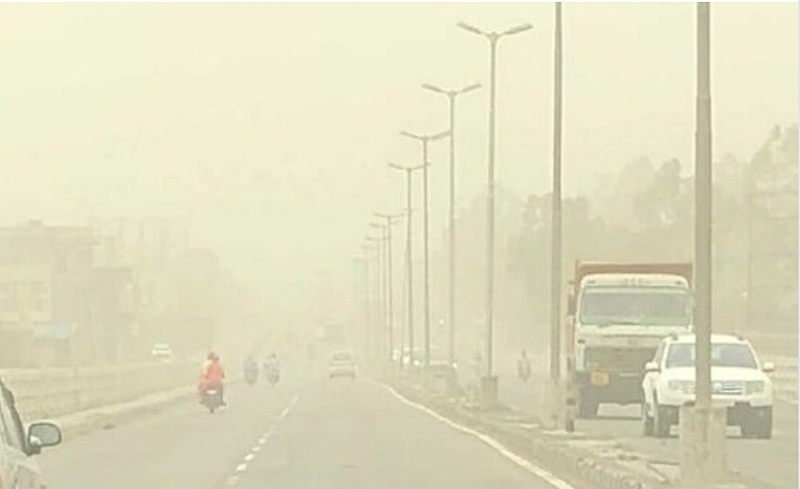The Environmental Protection Agency (EPA) of Ghana has issued a public health advisory regarding a significant decline in air quality due to the onset of the harmattan season, a dry, dusty wind blowing from the Sahara Desert. This seasonal phenomenon brings with it elevated levels of Particulate Matter (PM) 2.5, microscopic particles that pose a serious threat to respiratory and cardiovascular health. The EPA’s warning particularly emphasizes the vulnerability of sensitive groups, including children, pregnant women, older adults, and individuals with pre-existing heart and lung conditions. These groups are urged to take precautionary measures, such as wearing nose masks and limiting outdoor activities, to minimize their exposure to the harmful pollutants.
The EPA’s advisory is based on data collected from their air quality monitoring stations situated at the University of Ghana and Adabraka, which have recorded consistently high levels of PM 2.5 since December 13, 2024. The Air Quality Index (AQI) has fluctuated between “unhealthy for sensitive groups” and “very unhealthy” throughout this period, indicating a significant health risk. This observation aligns with the Ghana Meteorological Agency’s forecast, which predicts the persistence of dusty conditions and poor visibility until the latter part of December. The dust, originating from the Sahel region, is a characteristic feature of the harmattan season. Independent data from the Breathe Accra Project also corroborates the EPA’s findings, showing high pollution levels across all monitoring locations within the country.
PM 2.5 is particularly dangerous due to its microscopic size. These fine particles can easily penetrate deep into the respiratory system, reaching the lungs and even entering the bloodstream. This can lead to a range of adverse health effects, from irritation and inflammation to more serious conditions like asthma attacks, bronchitis, and cardiovascular problems. The EPA emphasizes the importance of understanding the health risks associated with PM 2.5 and taking appropriate action to protect oneself, especially for those within the vulnerable groups.
Dr. Allison Felix Hughes, Facility Manager of Afri-SET, a sensor evaluation center, echoed the EPA’s concerns, confirming the unhealthy levels of dust in the air. He urged the public to minimize outdoor exposure as a primary defense mechanism. For unavoidable outdoor activities, Dr. Hughes recommends wearing face masks and limiting the duration of exposure to reduce the inhalation of harmful particles. Recognizing the harmattan as a natural, recurring phenomenon beyond human control, he emphasizes the importance of proactive individual measures to mitigate health risks. He highlighted the correlation between the harmattan season and increased hospital admissions for respiratory illnesses like asthma and bronchitis, further underscoring the need for public awareness and preventative measures.
Beyond individual protective measures, the EPA and other experts recommend a range of actions to minimize dust emissions and improve air quality during the harmattan season. These include sprinkling water on dusty surfaces before sweeping to prevent the dust from becoming airborne, reducing vehicle speed on unpaved roads to minimize dust generation, and ensuring regular maintenance of vehicles and other fuel-burning equipment, including generator sets, to optimize their efficiency and minimize emissions. Idling engines should also be avoided, as this contributes to unnecessary air pollution.
The EPA also calls for public cooperation in minimizing activities that exacerbate air pollution, particularly the open burning of waste and other materials. Such practices release additional particulate matter into the air, further worsening the existing air quality issues. By adhering to these recommendations, individuals and communities can contribute to a healthier environment and minimize the adverse health impacts of the harmattan season. The combined efforts of individuals, communities, and regulatory bodies are crucial in managing the challenges posed by this annual climatic event and protecting public health. Continuous monitoring, timely public advisories, and proactive preventative measures are essential components of a comprehensive strategy to mitigate the risks associated with the harmattan and its associated air pollution.


